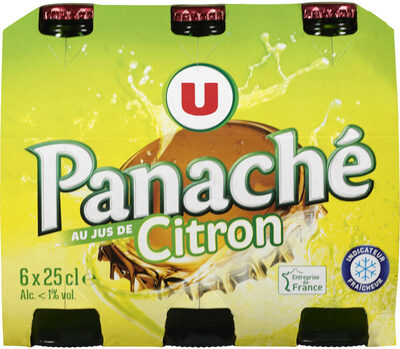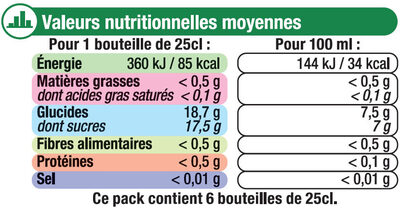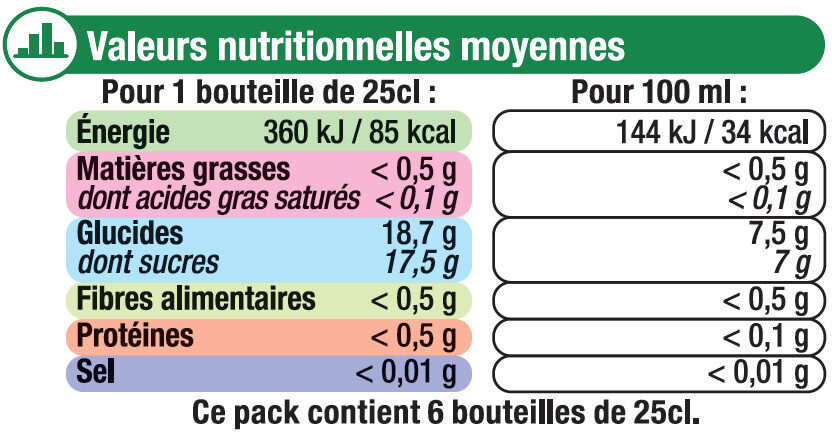Panaché au jus de citron 1° - U - <6 bouteilles en verre de 25 cl
This product page is not complete. You can help to complete it by editing it and adding more data from the photos we have, or by taking more photos using the app for Android or iPhone/iPad. Thank you!
×
Some of the data for this product has been provided directly by the manufacturer Système U.
Barcode: 3256226080884 (EAN / EAN-13)
Quantity: <6 bouteilles en verre de 25 cl
Packaging: fr:Alcool, fr:Bouteilles en verre
Brands: U
Categories: Beverages, Alcoholic beverages, Non-alcoholic beverages, Premixed alcoholic beverages, Beer-based alcoholic beverages, Mixed drinks, Non-alcoholic beers, Shandy, Sweetened beverages
Labels, certifications, awards: Transformed in France
Stores: Magasins U
Countries where sold: France
Matching with your preferences
Environment
Carbon footprint
Packaging
Transportation
Report a problem
Data sources
Product added on by kiliweb
Last edit of product page on by packbot.
Product page also edited by desan, openfoodfacts-contributors, org-systeme-u, systeme-u, systeme-u-off, yuka.UklCZE42UTdvOUEydXNjZzJBK0k4UDVxNG9HaUFIT3JEczhiSVE9PQ.








